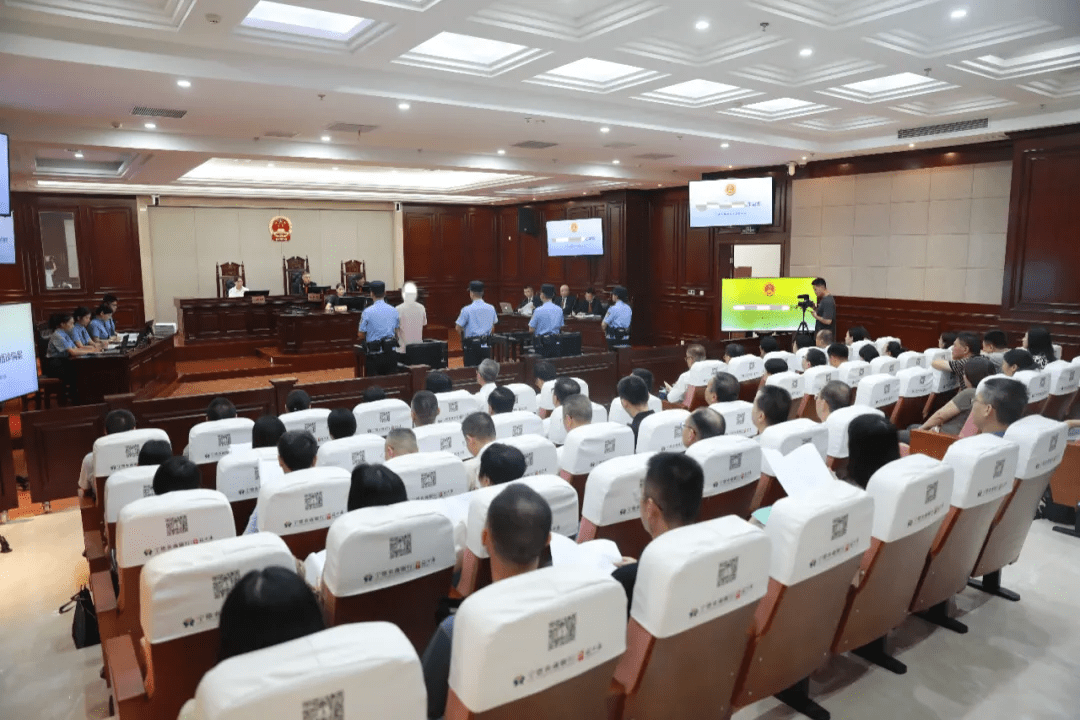Introduction
At the beginning of August, the Supreme People's Procuratorate published an article (Is it Concealment or Fraud? The Prosecutorial Authority Changes the Qualification and Accurately Prosecutes the Charge), where the cases are very relevant for the crypto community. Especially for friends who are concerned about the topic of 'how to legally deposit and withdraw in the crypto industry?'. Because once the deposits and withdrawals are improper, it could lead to freezing of accounts and confiscation of cash, or even suspected criminal activities. There are real and conclusive evidences proving the suspicion of crime, as well as situations where money was received inadvertently from black or gray industries.
This case belongs to the former scenario, involving the judicial authority's assessment and judgment of the criminal legal risks faced by parties in the process of buying and selling virtual currencies. I hope this article can provide some help to friends in the crypto community, especially those still in mainland China.
1. Case Introduction
(1)Court Hearing Background
On August 1, the fraud case involving Lin and Wu officially began trial, with the prosecution by the Jiao District Procuratorate of Ningde City, Fujian Province. Although this case is being tried in a grassroots court, relevant leaders from the Supreme People's Procuratorate also attended the trial and provided on-site guidance for the proceedings. Additionally, over 50 participants, including representatives from the Fujian Provincial Procuratorate and the National People's Congress, were involved in the evaluation activities, indicating the importance of this trial.
(2)Case Overview
The case of Lin and Wu suspected of fraud is not complicated: In October 2024, Lin and Wu joined the 'National Door-to-Door U Exchange Group' (on the Telegram app, commonly referred to as 'Telegram'), where they took orders in the group, helping their superior receive cash packages sent by a third party (actually the victim in a criminal case) or directly collecting cash in person, and then delivering the cash to the location designated by their superior. Their reward was 2% of the cash amount transferred.
The issue here lies with the superiors of Lin and Wu; the Telegram group is filled with groups for 'running points' and laundering money in the black and gray industries, and in the domestic context, these Telegram group superiors often engage in telecom fraud under the guise of 'recharge unfreeze, order brushing, investment rebates, recharge rebates', etc. After successfully scamming, they convert the funds obtained into USDT through the Telegram group for 'cleaning'. In this case, Lin and Wu's roles were to assist their superior in transferring funds.
(3)Practical Analysis
In judicial practice, the behavior of Lin and Wu is generally characterized as 'concealment crime' (concealing, hiding criminal proceeds, or the proceeds of crime), unless the suspect admits that he knows his superior is committing fraud. However, based on the human nature of seeking benefits and avoiding harm, once caught, they will surely argue that they did not know their superior was engaging in illegal activities and did not know that the funds they received and transferred were involved in the case. Lin and Wu were no exception; the police (investigative authority) initiated the case on concealment charges and transferred it to the procuratorate for review and prosecution.
However, this case should have a stage for returning to supplementary investigation, where the prosecutor actively guides the investigation, perfecting the evidence of the defendant's subjective knowledge and using fraudulent language and disguising identity to collect money from the victim, focusing on the fact that the defendants are accomplices in fraud rather than concealing or hiding the crime proceeds, methodically constructing the proof system. Ultimately, it was concluded that Lin and Wu constituted the crime of fraud.
Those familiar with our country's criminal law should know that compared with concealment crimes, fraud is a serious crime; in the context of an amount involved of 3.35 million, the principal offenders of fraud are certainly subject to a sentence of more than 10 years in prison (not considering circumstances such as confession and meritorious service), while concealment crimes cannot exceed 7 years (most likely within the range of 5 to 6 years); therefore, Lin and Wu and their lawyers will definitely advocate for applying concealment charges.
Why does the prosecution advocate for a heavier charge of fraud? The reasons are: First, Lin and Wu clearly knew they were helping their superior collect money that had been scammed from the victim when they gathered the 'cash handlers'; second, Lin and Wu taught the 'cash handlers' to disguise themselves as customer service personnel to deceive the victim's trust. The two defendants also admitted these points in court.

(Court hearing scene, source: Supreme Procuratorate)
The court session for this case has concluded, and a verdict may not have been announced yet. However, given that Lin and Wu confessed and accepted punishment in court, it is highly likely that the court will convict them of fraud. However, Lawyer Liu believes that the two are not the direct perpetrators of the fraudulent act, and even if classified as fraud, there is still an opportunity to argue for being accomplices, with sentencing ranging from 3 to 10 years.
Even if there is insufficient evidence to confirm upstream criminal activities, the defense can completely argue for the court to reduce the amount involved in the case (for example, examining whether all the funds involved in the prosecution have reporting persons and corresponding records, and whether they may involve criminal activities such as pyramid schemes, illegal gambling, etc., if so, the amount can be reduced).
2. Selling U is not illegal, but why does it still involve criminal suspicion?
Many people in the crypto community are aware that investment activities in virtual currencies are not prohibited in our country, but the parties involved bear the risks; from the perspective of deposits and withdrawals: those depositing funds are similar, while those withdrawing funds each have their misfortunes.
There is no law or regulation in our country that prohibits citizens from selling their virtual currencies, but why do frequent occurrences of account freezes and cash confiscation happen, and even some individuals are deemed to be suspected of crimes by judicial authorities for selling U?
The core issues here are twofold: first, our country's regulatory policy on virtual currencies does not allow for virtual currency transactions (see the notice issued by ten ministries and commissions of the state on September 15, 2021, regarding further prevention and handling of risks related to virtual currency trading and speculation); second, in practice, once you sell U and receive dirty money (involved in fraud, gambling, etc.), in addition to being frozen and deducted by judicial authorities, you may also be scrutinized 360 degrees for any suspicion of crime. For example, whether your contact with the superior is close, whether there is a consensus on joint criminal activities (such as discussing how to launder money).
For example, Lin and Wu in this case admitted in court that they knew the money they helped their superior withdraw was the money that had been scammed from the victim, and they also trained team members to disguise themselves as customers to gain the victim's trust, etc. These actions are viewed by judicial authorities as criminal acts that transcend the red line of criminal law.
3. Suggestions for Crypto Practitioners
Some crypto practitioners have always felt that they are legitimate and stable and have never participated in black or gray industries, believing that judicial authorities have no reason to 'trouble them'. However, this is a misunderstanding of our country's crypto policy.
Although we mentioned above that reasonable and legitimate trading of virtual currencies (such as purely for investment purposes) is not illegal in our country, and certainly cannot be a crime. However, based on the reality that mainland China prohibits trading of virtual currencies (for example, in payment channels, we prohibit banks and non-bank financial institutions from providing account opening and fund settlement services for virtual currency transactions), we strongly advise all friends in the crypto community to refrain from withdrawing funds unless necessary. If you must withdraw, ensure that the funds received are legal, compliant, and clean before proceeding.
If faced with a buyer requesting cash transactions, one must be extremely cautious. In mainland China, where online payments are already widespread, using cash to buy and sell virtual currencies can easily lead judicial authorities to conclude that you are aware of issues with the funds.
4. Conclusion
Today, the WebX conference opened in Tokyo, and during the morning session, CZ spoke followed by a speech from Japanese Prime Minister Shigeru Ishiba, who stated that virtual currencies, especially stablecoins, represent a once-in-a-century upheaval, and in the future, the (Japanese) government will continue to support the crypto industry. Additionally, the Japanese Financial Services Agency announced a few days ago that it plans to reduce the tax burden on cryptocurrencies to a one-time tax of 20% next year.

(Image source network, deletion upon request)
Reuters reported on August 20 that China may launch a yuan stablecoin by the end of the month, and it was said that this information would be announced at a certain meeting. However, my judgment is that it is currently very difficult for the domestic virtual currency market to open, primarily because our financial policies and management systems do not allow for the existence of virtual currencies, especially those that are anti-regulatory, anonymous, and transnational.


